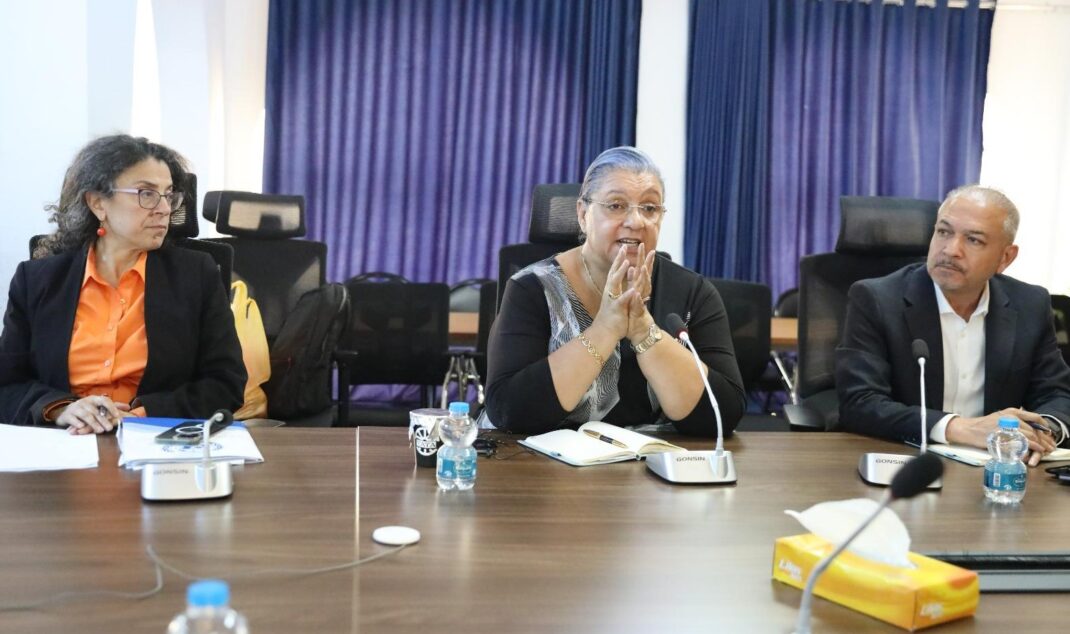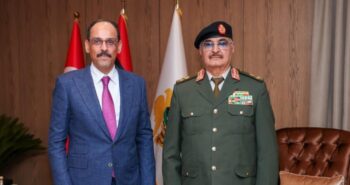Mustafa Fetouri

The UN mission in Libya, criticised for its internal dysfunction, has laid out a new political roadmap that promises progress but will likely deliver paralysis
Last week, the United Nations Support Mission in Libya (UNSMIL) began soliciting nominations for a 120‑person “Structured Dialogue,” a key component of its 18‑month roadmap toward national elections in the war-torn country.
A first meeting is expected soon, signalling UNSMIL’s intention to advance the political process. Yet an internal audit published in October 2024 documented systemic governance and management failures – including a missing Concept of Operations, unimplemented prior recommendations, and weaknesses in finance, procurement, and staffing.
While UNSMIL formally accepted the recommendations, there is no public evidence that they have been fully implemented, raising doubts about its capacity to deliver a complex, trust‑dependent electoral process.
The UN mission, created in the aftermath of the Libyan civil war, has a record of strategic aimlessness and internal dysfunction that critics say renders it ill-prepared to lead an 18‑month process requiring trust and discipline from rival Libyan factions.
These institutional weaknesses have tended to reinforce the widespread Libyan critique that the mission is prolonging the very crisis it was meant to resolve.
The UNSMIL’s fragility
UNSMIL’s roadmap rests on three pillars: adopting a technically sound and politically viable electoral framework, unifying Libya’s institutions and government, and holding a Structured Dialogue to engage Libyans on governance, economic, security, and reconciliation issues.
Yet its credibility is undermined by symbolic and institutional weaknesses. Former Special Envoy Abdoulaye Bathily, who resigned in April 2024, still lists himself as UNSMIL head on X, highlighting the gap between the UN’s public narrative and internal mission realities.
This disconnect mirrors the 2024 audit’s findings, raising doubts about UNSMIL’s capacity to implement a complex, trust‑dependent electoral process.
The audit had exposed systemic flaws, casting doubt on UNSMIL’s ability to execute the roadmap. It notes a strategic void, with no finalised Concept of Operations for over two years, leaving mandate guidance and priorities undefined.
The audit highlights a crisis of accountability, with prior strategic recommendations largely ignored, and no mechanisms in place to monitor progress or enforce corrective action. Operational risks remain, including deficiencies in finance, procurement, and staffing, with critical vacancies compromising core activities.
While UNSMIL formally accepted all recommendations, only ‘Recommendation 3’ on monitoring and filling vacancies had been implemented at the time, with most others in their early stages, showing that acknowledgement alone has not translated into functional reform.
The mission’s internal weaknesses are compounded by political manoeuvres aimed at delaying the process. Libyan National Army (LNA) leader General Khalifa Haftar, a key player, has spoken of tribal-based alternative initiatives, while many parliamentarians – mostly his supporters – have increased criticism of UNSMIL, erecting further obstacles.
Such ambiguity allows rival factions to exploit institutional failings, raising serious doubts about UNSMIL’s ability to shepherd Libya toward credible elections under its current structure.
In her 14 October 2025 briefing to the United Nations Security Council, Hanna S. Tetteh, Special Envoy to Libya, issued a blunt warning.
If the institutional steps of the roadmap, such as the reconstitution of the High National Elections Commission and amendments to the electoral and constitutional legal framework, are not completed within the next month, “UNSMIL must - and will - pursue another approach and seek the support of this Council to help ensure that the roadmap advances”.
The heightened urgency underscores how UNSMIL itself views the first phases of the plan as being at critical risk.
Yet this insistence on speed comes even as the mission remains under the shadow of its own 2024 audit’s findings of strategic and governance paralysis (no approved Concept of Operations, many unimplemented recommendations) – a striking contradiction that raises the question: how can a mission that admits it may “pursue another approach” still credibly insist on guiding a complex, trust‑dependent electoral process in a country as fragmented as Libya?
The roadmap also faces acute political obstacles in western Libya. Any attempt to form a new government – a prerequisite for the Structured Dialogue – that excludes Prime Minister Abdul Hamid Dbeibah is unlikely to be accepted by his armed supporters, mainly in his hometown, Misrata.
With his popularity at rock bottom, his legitimacy eroded, his government widely seen as corrupt, and facing rejection by most political actors, forcing him from office could spark violent confrontation in Tripoli itself.
In this context, many observers view the proposed new unified government – a key pillar of UNSMIL’s plan – as a potential trigger for conflict, with the Structured Dialogue potentially igniting tensions rather than easing them.
While UNSMIL may be able to navigate these challenges, doing so would require strong, clear, and unequivocal backing from the UN Security Council, which is not guaranteed at this point.
Although the Structured Dialogue has yet to begin, UNSMIL’s determination to move forward with its preparatory steps – soliciting nominations and setting timelines – has already drawn criticism from Libyan observers.
Many question whether the mission can deliver on its pledge to ensure balanced representation across political, social, and security lines. For now, the process remains opaque, and its credibility and legitimacy will depend on who is ultimately selected to participate.
Scepticism persists that the dialogue, the final stage of the roadmap, could reproduce existing power structures rather than overhaul them, particularly if key stakeholders from the east or influential security actors feel excluded. Until the list of participants is made public, concerns about tokenism and limited inclusivity will continue to overshadow UNSMIL’s initiative.
At the same time, UNSMIL faces the delicate task of balancing competing and conflicting expectations from all Libyan protagonists and international stakeholders. While the mission emphasises inclusivity in principle, many Libyans remain unconvinced of its neutrality, especially given its ongoing interactions with the Dbeibah administration.
Questions about timing, selection criteria, and potential influence by entrenched political actors fuel doubts that the dialogue will meaningfully address Libya’s longstanding divisions.
Observers note that even the perception of partiality – real or imagined – could undermine public trust before the process even begins. As one analyst put it, “initiatives multiplied, proposals diverged, and no process was ever completed – only prolonging the crisis”.
And from the east, a public statement warned of “unilateral actions … a violation of the sovereignty of the Libyan State”. This growing scepticism complicates UNSMIL’s ability to act as a credible mediator in the later stages of the roadmap.
Haftar and political interference
Compounding UNSMIL’s challenges, General Khalifa Haftar recently met with tribal delegations from different parts of Libya, emphasising that the resolution of the political crisis must come “from the people, with the support of the tribes”, and assuring that “any agreement… will find its implementation guaranteed by the LNA”.
While these meetings do not constitute formal initiatives outside UNSMIL’s roadmap, Haftar’s encouragement and offer of guarantees function as a political counter‑signal, offering an alternative path outside the structured dialogue.
Analysts are divided on his intentions: some interpret it as an effort to shape the process in his favour, while others see it as a strategy to delay implementation by creating uncertainty among political actors and the public.
Regardless of motive, Haftar’s intervention highlights how competing domestic agendas – particularly from influential eastern and southern actors – can limit UNSMIL’s leverage and threaten the fragile consensus the roadmap seeks to build.
Undoubtedly, UNSMIL finds itself in a particularly difficult position. Beyond its own structural weaknesses, it faces a high-stakes balancing act.
This includes navigating entrenched rivalries, repairing its increasingly questioned credibility, ensuring genuinely representative participation in the upcoming Structured Dialogue, and managing the competing agendas of both domestic and international actors – while making clear that the Dialogue’s recommendations are not binding on the Mission.
Although UNSMIL’s goal remains to unify Libya and take it to elections, a long-time wish of Libyans, domestic scepticism, regional divisions, and the unpredictable interventions of influential figures cast serious doubt on whether the roadmap can achieve its objectives.
The coming months will test not only UNSMIL’s capacity to mediate but also Libya’s fragile social and political cohesion, with any misstep risking an escalation of tensions rather than their resolution.
______________________





